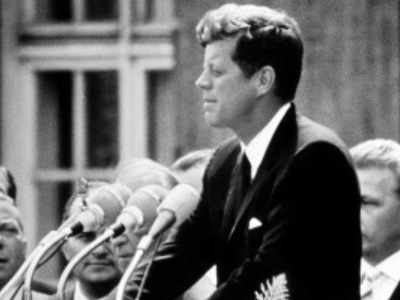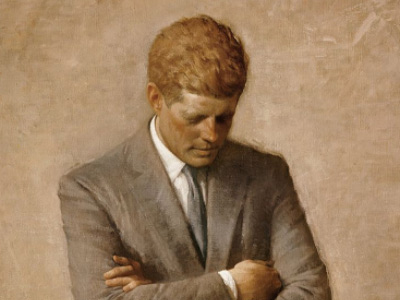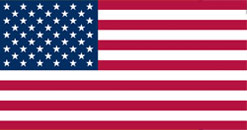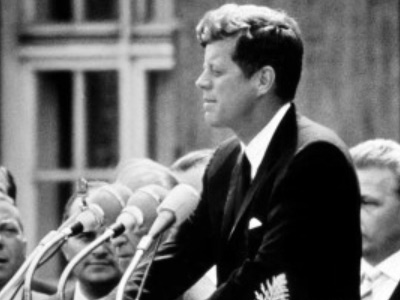Presidency (1961–1963)
John F. Kennedy was sworn in as the 35th president at noon on January 20, 1961. In his inaugural address, he spoke of the need for all Americans to be active citizens, famously saying, "Ask not what your country can do for you. Ask what you can do for your country." He asked the nations of the world to join together to fight what he called the "common enemies of man: tyranny, poverty, disease, and war itself". He added:
"All this will not be finished in the first one hundred days. Nor will it be finished in the first one thousand days, nor in the life of this Administration, nor even perhaps in our lifetime on this planet. But let us begin." In closing, he expanded on his desire for greater internationalism: "Finally, whether you are citizens of America or citizens of the world, ask of us here the same high standards of strength and sacrifice which we ask of you."
The address reflected Kennedy's confidence that his administration would chart a historically significant course in both domestic policy and foreign affairs. The contrast between this optimistic vision and the pressures of managing daily political realities at home and abroad would be one of the main tensions running through the early years of his administration.
Kennedy brought to the White House a contrast in organization compared to the decision-making structure of former-General Eisenhower, and he wasted no time in scrapping Eisenhower's methods. Kennedy preferred the organizational structure of a wheel with all the spokes leading to the president. He was ready and willing to make the increased number of quick decisions required in such an environment. He selected a mixture of experienced and inexperienced people to serve in his cabinet. "We can learn our jobs together", he stated.

These books are available for download with Apple Books on your Mac or iOS device
Much to the chagrin of his economic advisors, who wanted him to reduce taxes, Kennedy quickly agreed to a balanced budget pledge. This was needed in exchange for votes to expand the membership of the House Rules Committee in order to give the Democrats a majority in setting the legislative agenda. The president focused on immediate and specific issues facing the administration and quickly voiced his impatience with pondering of deeper meanings. Deputy National Security Advisor Walt Whitman Rostow once began a diatribe about the growth of communism, and Kennedy abruptly cut him off, asking, "What do you want me to do about that today?"
Kennedy approved Defense Secretary Robert McNamara's controversial decision to award the contract for the F-111 TFX (Tactical Fighter Experimental) fighter-bomber to General Dynamics (the choice of the civilian Defense department) over Boeing (the choice of the United States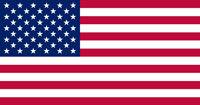 The United States of America (U.S.A. or USA), commonly known as the United States (U.S. or US) or America, is a country in North America. It is the world's third-largest country by both land and total area. The United States shares land borders with Canada to its north and with Mexico to its south. The national capital is Washington, D.C., and the most populous city and financial center is New York City. military). At the request of Senator Henry Jackson, Senator John McClellan held 46 days of mostly closed-door hearings before the Permanent Subcommittee on Investigations investigating the TFX contract from February to November 1963.
The United States of America (U.S.A. or USA), commonly known as the United States (U.S. or US) or America, is a country in North America. It is the world's third-largest country by both land and total area. The United States shares land borders with Canada to its north and with Mexico to its south. The national capital is Washington, D.C., and the most populous city and financial center is New York City. military). At the request of Senator Henry Jackson, Senator John McClellan held 46 days of mostly closed-door hearings before the Permanent Subcommittee on Investigations investigating the TFX contract from February to November 1963.
During the summer of 1962, Kennedy had a secret taping system set up in the White House, most likely to aid his future memoir. It recorded many conversations with Kennedy and his Cabinet members, including those in relation to the "Cuban Missile Crisis".
HISTORY
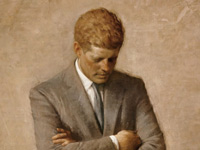
RESOURCES
This article uses material from the Wikipedia article "John Fitzgerald Kennedy", which is released under the Creative Commons Attribution-Share-Alike License 3.0.
© Stories Preschool. All Rights Reserved.
